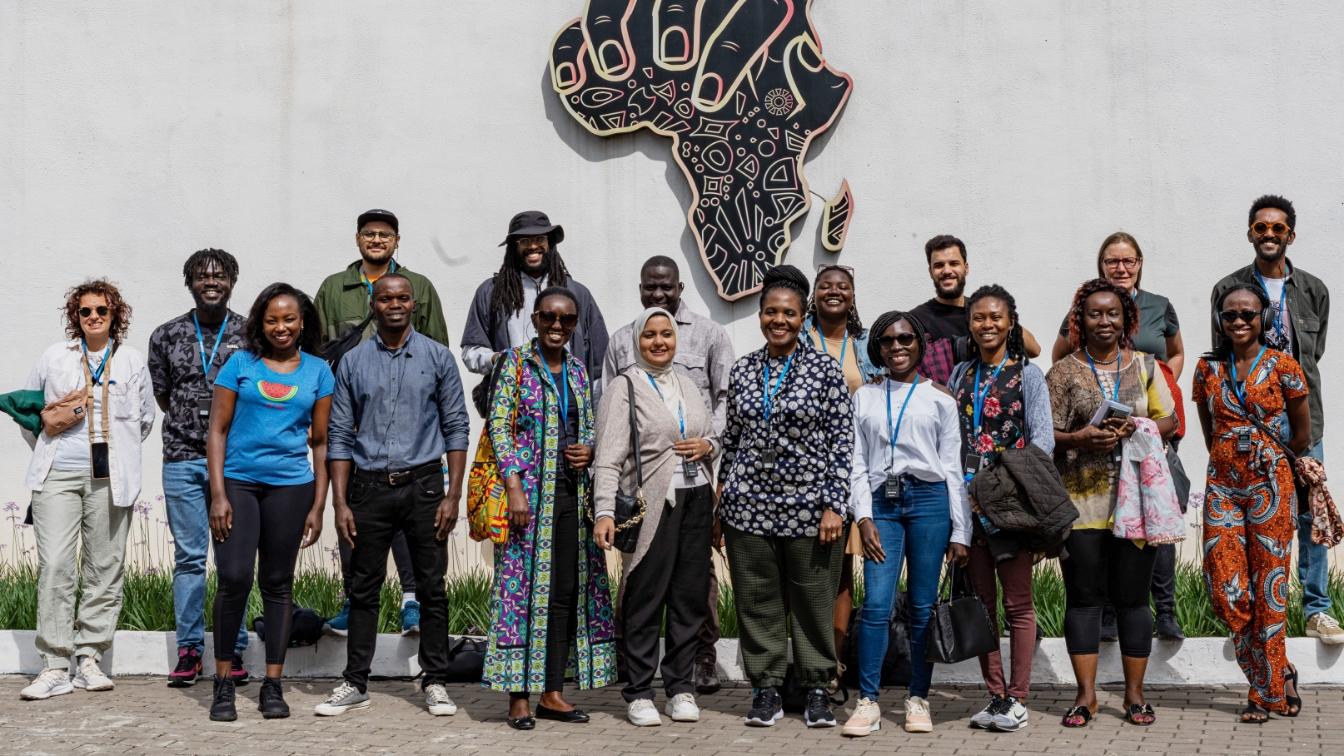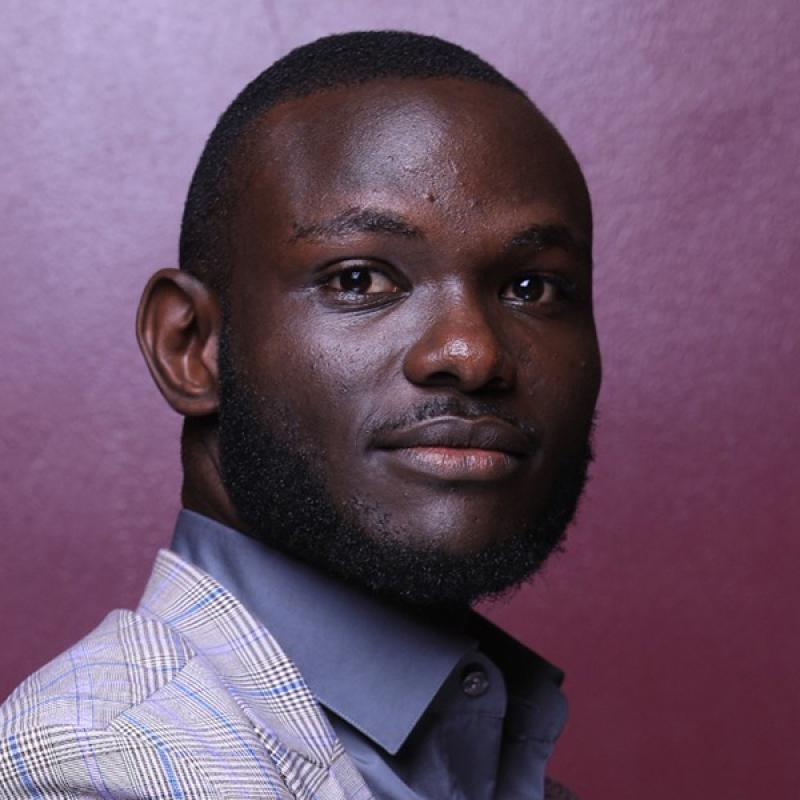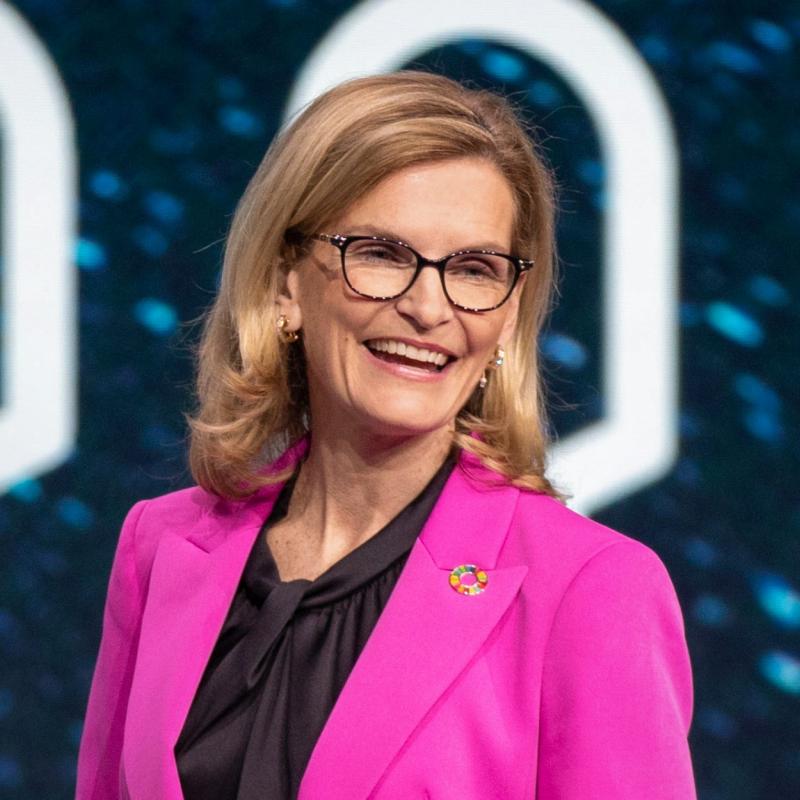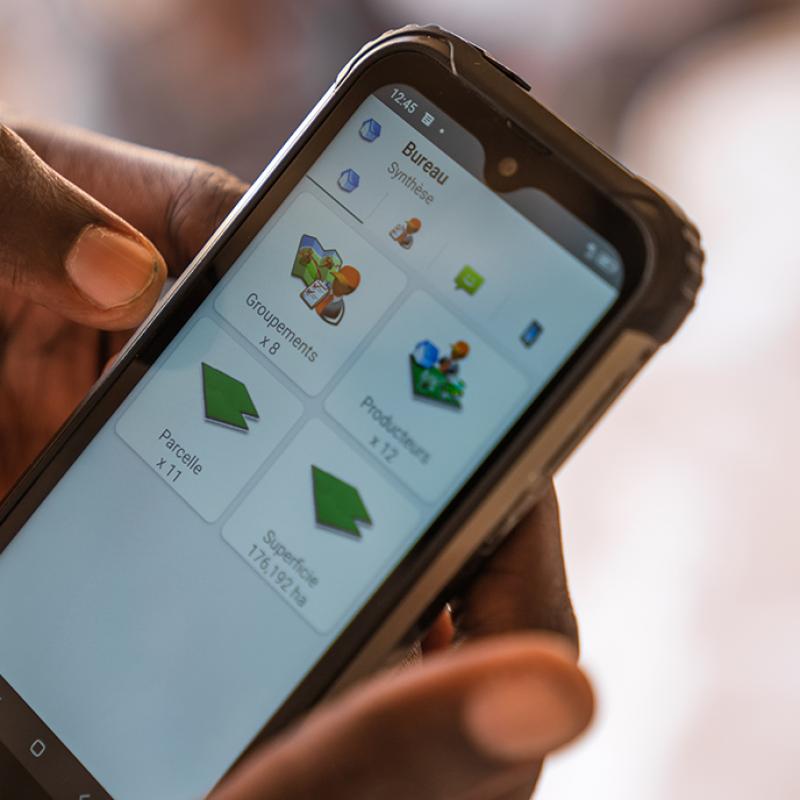The development goals of the African Union are set out in the Agenda 2063, which envisages an ‘integrated, prosperous and peaceful Africa, driven by its own citizens’. The AU’s Digital Transformation Strategy for Africa 2020-2030 also aims to harness digitalisation to foster inclusive societies and improve the quality of life for the citizens of Africa. The AU and GIZ launched the AU Media Fellowship as part of the drive to achieve these goals.
African perspectives
Information is a powerful tool in democratic opinion forming. The African Union Media Fellowship enhances the capacity of African journalists to tell stories for and about their continent.
Independent, fact-based journalism is becoming increasingly important as a way of giving people access to information and debates that concern society as a whole. While digital media simplify and accelerate the flow of information, and reach an ever-expanding audience, they also allow disinformation to spread at lightning speed. For governments, societies, private companies and citizens, the rapid pace of digitalisation in Africa offers opportunities, but also poses challenges in this respect.
How can more people be encouraged to engage actively with African development debates on the basis of sound information? The African Union (AU) Commission is striding out along new paths in cooperation with the Deutsche Gesellschaft für Internationale Zusammenarbeit (GIZ) GmbH. The AU Media Fellowship was launched in early 2022.
The AU Media Fellowship – an overview
The map below shows the regional distribution of the first cohort, which started in 2022. Click on the flashing crosses to read exclusive statements from some of the Fellows.

Jeanine Fankam
‘African journalists know how to achieve a lot with virtually nothing.’
Aïssatou Fofana
‘We need a paradigm shift if we are to achieve better reporting on Africa.’
Yasser Machat
YouTuber and content creator with over 350,000 followers
Simmi Areff
Award-winning comedian and podcast pioneer
The pilot project focuses on the interface between digital innovation and citizen participation. It is aimed at traditional journalists and content creators who publish their material on social media and online platforms. The response was overwhelming, with 800 people applying for the Fellowship in April 2022.
When selecting Fellows, the initiators were keen to ensure balanced representation. The 15 successful applicants, nine of them women, come from 12 African states, and the six main AU working languages are represented. They work for well-known African and international media outlets, have hundreds of thousands of followers on social media, and are media professionals with innovative ideas from and for Africa. What does the Fellowship offer them?
Inspiration from research work in Africa and Germany
Study trips took the Fellows to Bonn and Berlin, as well as to Addis Ababa, Johannesburg and Cape Town. They were effective ambassadors of (pan)African views at the Global Media Forum in Bonn, Europe’s largest media conference. In Berlin they engaged in discussions with a number of parliamentarians from the German Bundestag, with topics including the work of the parliamentary Committee on Cultural and Media Affairs. In the WELT newsroom, Fellows experienced firsthand the work of Europe’s biggest publishing network.
Agenda 2063 and digital transformation
In Addis Ababa, home to the AU Commission, they talked to the Director General and the Deputy Chairperson about the specific strategies in place to achieve African development goals. And a visit to Midrand, Johannesburg gave them exclusive insights into the Pan-African Parliament and current debates.
Alongside theoretical discussions and practical expertise in the field of mobile journalism, the AU Media Fellowship offers a platform for Fellows to cooperate across national borders and shape new pan-African narratives. All too often reporting on Africa is still external and cliché-ridden, rather than reporting by Africans on Africa. The AU Media Fellows are working to change this. They are currently focusing on their final stories, which address issues including the African Continental Free Trade Area (AfCFTA), political stability and digitalisation.

The first cohort of AU Media Fellows during the study trip to Addis Ababa in October 2022


